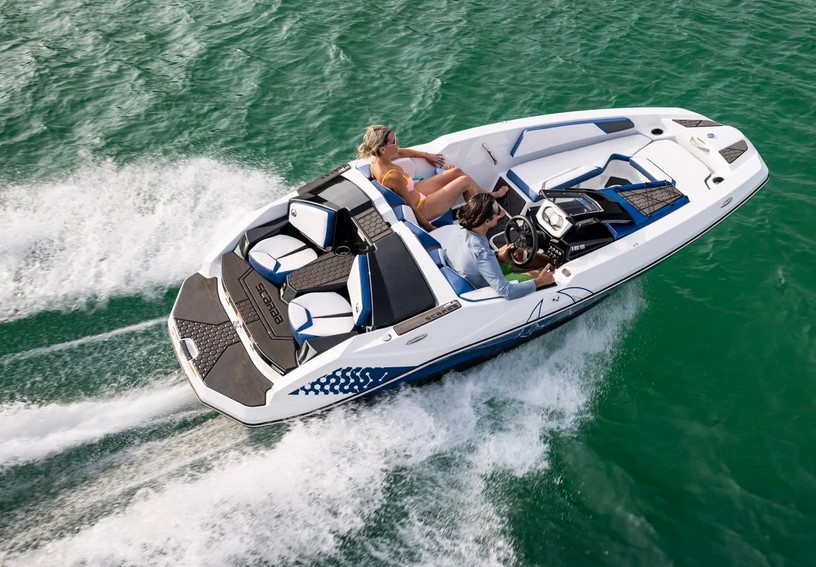The sun dancing on the water, the gentle lapping of waves against the hull, and the promise of adventure on the horizon—boating is not just a pastime; it's a passion shared by millions. Yet, for many, the journey into open waters is often anchored down by the cumbersome and convoluted process of boating registration.
With each state in the U.S. boasting its own set of rules, regulations, and requirements, the dream of setting sail can quickly become mired in bureaucratic red tape. It's high time for a change—a move towards simplifying boating registration nationwide, to ensure that the only thing boaters need to navigate are the waters ahead.

The Current Complications
Currently, the process of registering a boat in the United States is anything but straightforward. With over 50 different sets of rules across states and territories, what works in one place might not pass muster in another.
This patchwork system not only frustrates owners but also complicates interstate travel and commerce. Imagine planning a tranquil voyage across state lines, only to find that your registration is not recognized or your boat does not meet another state’s specific requirements. This scenario is all too common and one that begs for a streamlined solution.
The Call For A Unified System
The call for simplification is not just about easing the burden on boat owners; it’s about creating a more unified and cohesive boating community nationwide. A standardized system for boating registration would not only facilitate easier movement between states but also ensure a uniform standard of safety, environmental protection, and operational competency.
Such a system could include:
Uniform Documentation
A single, standardized form for all states, detailing the necessary information for registration.
Centralized Database
A nationwide database accessible by all states, allowing for quick verification of registration and ownership.
Reciprocal Recognition
Ensuring that a registration in one state is recognized in all others, similar to driver’s licenses.
Standardized Safety and Environmental Regulations: Uniform safety and environmental standards that all boats must meet, simplifying the requirements for boat owners.
The Benefits Of Simplification
The advantages of streamlining the boating registration process are vast and varied, touching on everything from increased accessibility to enhanced safety.
Accessibility and Ease
By removing the barriers and confusion of differing state regulations, more people may be encouraged to take up boating. Simplification means that potential boat owners no longer need to be legal experts to navigate the registration process, making boating more accessible to all.
Safety Standards
A unified system would also mean standardized safety regulations, ensuring that all boats on U.S. waters meet a set level of safety. This could significantly reduce accidents and incidents related to under-equipped or poorly maintained vessels.
Environmental Protection
Standardizing environmental regulations across the board would help protect the nation’s waterways. By having a single set of environmental standards, boat owners would be better informed and equipped to comply, leading to cleaner waters and healthier marine ecosystems.
Economic Boost
Simplifying the registration process could also provide an economic boost. With easier access and clearer regulations, more people might be inclined to purchase boats, stimulating the boating industry. Additionally, a unified system could reduce administrative costs for states, allowing for better allocation of resources towards conservation and waterway maintenance.
The Path Forward
Achieving nationwide simplification of boating registration is no small feat. It requires collaboration between state governments, federal agencies, and stakeholders within the boating community. Open dialogue, willingness to compromise, and a shared vision for a more accessible and unified boating future are essential. Technology will play a crucial role, with digital platforms and databases offering a potential backbone for a new, streamlined system.
As we chart the course towards simplification, it’s essential to keep the dialogue open, engage with the boating community, and work towards practical solutions that benefit all.

Frequently Asked Questions
1. Can I register my boat online, or do I need to do it in person?
Most states now offer online registration options, but requirements vary. Check your state’s boating department website for specific details.
2. Do boat registrations need to be renewed?
Yes, boat registrations typically need to be renewed every one to three years, depending on the state.
3. Is there a grace period for expired boat registrations?
Many states offer a grace period, but the length and terms vary. It’s important to renew before expiration to avoid penalties.
4. Can I use my boat in another state if it’s registered in my home state?
In most cases, yes, for a limited time. However, if you plan to use it in another state for an extended period, you may need to register it there as well.
5. Are there any boats that don’t need to be registered?
Generally, non-powered boats (like kayaks and canoes) and small, powered watercraft may not require registration. However, this varies by state.
6. What documents are needed for boat registration?
Typically, you’ll need proof of ownership (such as a bill of sale), identification, and payment for any applicable fees. Some states may require additional documents.
7. How much does boat registration cost?
The cost varies widely depending on the state, the size of the boat, and the type of propulsion. Check your state’s boating department website for fee structures.
8. Is insurance required for registered boats?
While not all states require insurance for registration, it’s highly recommended to insure your boat for protection against accidents, theft, and other damages.
9. Can I transfer my registration to a new owner if I sell my boat?
Yes, but the process varies by state. Generally, you’ll need to sign over the title or provide a bill of sale to the new owner, who will then need to register the vessel in their name.
10. What happens if I don’t register my boat?
Operating an unregistered boat is illegal in states that require registration. Penalties can include fines, impoundment of your boat, and in some cases, criminal charges.
Conclusion
The journey to simplifying boating registration nationwide is much like setting out on a voyage—filled with challenges, but immensely rewarding. It’s about ensuring that the freedom, joy, and unity that boating brings are accessible to all, unencumbered by unnecessary complexities.
At the heart of this journey is the vision of a boating community that thrives on open waters, where the only borders are the ones we choose to explore. And as we navigate these waters together, remember that Boatzon.com is your ultimate destination for all your boating needs—from finding your next boat to navigating the simplified registration process once it becomes a reality. Visit Boatzon today, and let’s set sail towards a brighter, more unified boating future.
Simplifying boating registration nationwide is not just a matter of convenience; it’s a step towards a more inclusive, safe, and thriving boating culture. Let’s make the waters open for all, beyond borders.



